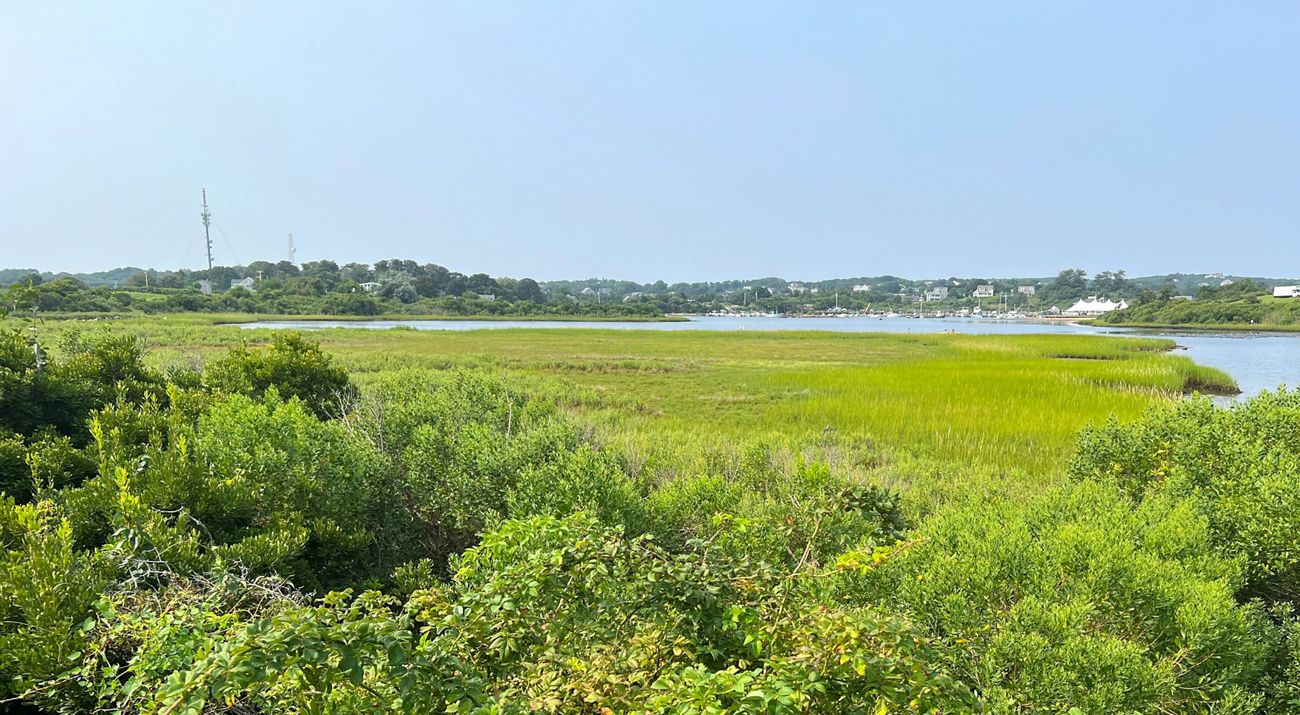
TNC Conserves Coastal Lands on Block Island and Moonstone Beach
Two acquisitions, long sought by local conservationists, protect clean water and wildlife habitat and boost coastal resilience.
Media Contacts
-
Tim Mooney
The Nature Conservancy
Mobile: 401-529-1072
Email: tmooney@tnc.org
The Nature Conservancy announces the permanent conservation of coastal properties on Block Island and in South Kingstown, totaling 11 acres of important wildlife habitat along the Rhode Island shoreline.
Protecting Clean Water in Trim’s Pond
On Block Island, TNC purchased a five-acre property on Corn Neck Road, across from the Fred Benson Town Beach. Located on the northeast corner of Trim’s Pond and divided into 26 tiny lots, the land helps protect clean water in the immediate area, and also in the Great Salt Pond, which is connected to it by tidal flow.
Quote: Scott Comings
“The island’s conservation community had been hoping to protect this property for more than 30 years. We’re so grateful to the Block Island Land Trust and the Block Island Conservancy for their partnership, which really made this project happen.
The property’s salt marsh and mudflats are spawning areas for horseshoe crabs and provide excellent habitat for migratory shorebirds and wading birds, including egrets, American oystercatchers, black-bellied plovers and greater yellowlegs. The adjacent shallow waters are important feeding areas for sea ducks that breed in the Arctic but spend the winter around Block Island.
In the future, there may be opportunities to demonstrate the effectiveness of nature-based solutions to coastal erosion and sea level rise, which threaten Corn Neck Road as Block Island adapts to climate change.
The Block Island Land Trust contributed $700,000 toward the $1 million purchase price and will hold a conservation easement over the property, providing additional legal protection. The Block Island Conservancy provided a $100,000 grant in exchange for the right to enforce the conservation easement, if necessary. Gifts from individual TNC donors covered the remaining balance.
A Win for Trustom Pond
In South Kingstown, TNC recently protected six beachfront acres in the Green Hill community, next to the Trustom Pond National Wildlife Refuge, through the donation of a conservation easement.
The land is composed mostly of healthy shrubland and coastal grassland habitat. The property also has frontage on Moonstone Beach, one of Rhode Island’s most important and productive nesting areas for least terns and piping plovers, which are protected by the Endangered Species Act.
Under a conservation easement, the development rights are transferred to a conservation organization, protecting the property permanently, although the land remains in private ownership. The donor previously conserved 8 acres of abutting land in partnership with the South Kingstown Land Trust. TNC is very grateful to the donor for their generosity and commitment to wildlife conservation.
The Nature Conservancy is a global conservation organization dedicated to conserving the lands and waters on which all life depends. Guided by science, we create innovative, on-the-ground solutions to our world’s toughest challenges so that nature and people can thrive together. We are tackling climate change, conserving lands, waters and oceans at an unprecedented scale, providing food and water sustainably and helping make cities more resilient. The Nature Conservancy is working to make a lasting difference around the world in 83 countries and territories (39 by direct conservation impact and 44 through partners) through a collaborative approach that engages local communities, governments, the private sector, and other partners. To learn more, visit nature.org or follow @nature_press on X.
